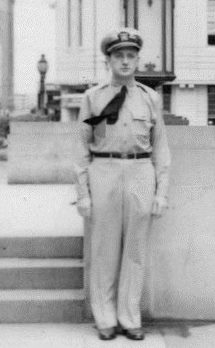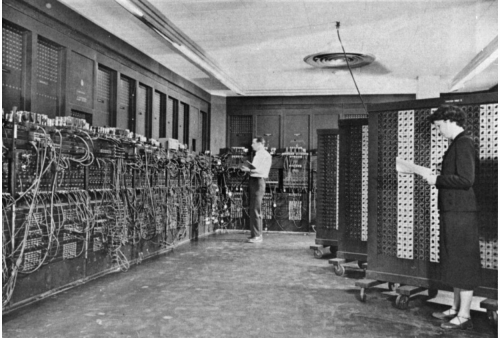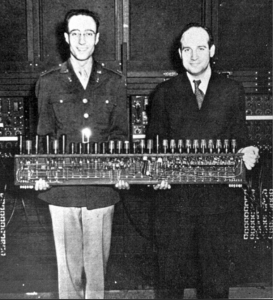William Shirer, on his experiences in Germany during the early Nazi era:
I myself was to experience how easily one is taken in by a lying and censored press and radio in a totalitarian state. Though unlike most Germans I had daily access to foreign newspapers, especially those of London, Paris and Zurich, which arrived the day after publication, and though I listened regularly to the BBC and other foreign broadcasts, my job necessitated the spending of many hours a day in combing the German press, checking the German radio, conferring with Nazi officials and going to party meetings. It was surprising and sometimes consternating to find that notwithstanding the opportunities I had to learn the facts and despite one’s inherent distrust of what one learned from Nazi sources, a steady diet over the years of falsifications and distortions made a certain impression on one’s mind and often misled it. No one who has not lived for years in a totalitarian land can possibly conceive how difficult it is to escape the dread consequences of a regime’s calculated and incessant propaganda. Often in a German home or office or sometimes in casual conversation with a stranger in a restaurant, a beer hall, a café, I would meet with the most outlandish assertions from seemingly educated and intelligent persons. It was obvious that they were parroting some piece of nonsense they had heard on the radio or read in the newspapers. Sometimes one was tempted to say as much, but on such occasions one was met with such a stare of incredulity, such a shock of silence, as if one had blasphemed the Almighty, that one realized how useless it was even to try to make contact with a mind which had become warped and for whom the facts of life had become what Hitler and Goebbels, with their cynical disregard for the truth, said they were.
Even though Shirer had plenty of access to outside news and information sources, and was well aware of Nazi lies, he still found it difficult to escape psychologically from the effects of the stiflingly-constrained information environment.
Many of us have wondered how intelligent people–some of whom we may know personally–can fall so completely under the spell of the Democrat worldview, as it exists in its present ‘woke’ state…a worldview which is replete with ‘the most outlandish assertions,’ to use Shirer’s phrase. But consider: if one gets one’s news from CNN, MSNBC, and even the traditional networks, and from newspapers such as The Washington Post and The New York Times and their imitators…and one’s entertainment from mainstream movies and musical groups…and one works for a company, university, or ‘nonprofit’…then one is living within a highly uniform information and opinion environment. Yes, you might be exposed to the occasional dissident opinion on social media or directly from friends and acquaintances, but you will develop ‘antibodies’, inculcated by the approved sources, which lead you to dismiss such opinions as conspiracy theories, brainwashing by Trump, or something similar.
It is, of course, much easier to find dissenting voices in 2021 America than it was in the time and place of which Shirer wrote. (Shirer does say that ‘in those days, in the Thirties, a German listener could still tune his dial to a score of foreign radio stations’ without taking much risk…but most didn’t, evidently, or chose to disbelieve what they heard from outside sources.)
The psychological drive to conform reinforces the controlled information environment and discourages explorations outside of it. In my post Oxytocin and Conformity, I cited some research on how the ‘cuddling and belonging’ hormone oxytocin affects public and private conformity, and recalled one of the episodes of the TV series The World at War in which a German man spoke about the temptation to conform. He had been strongly anti-Nazi, but admitted that he had felt a strong emotional pull to join the rallies and be a part of the the movement. (He said it much more eloquently than the foregoing sentence would suggest) I also cited a blog post whose author, after critiquing the craziness of the extreme “progressives,” went on to say:
I’m going to be very real with you for a moment, and take off my hat has a blogger, an author, and whatever else I may be, and just speak to you as a man.
This could have been me.
Does that surprise you? There was a time I skirted so close to falling under this spell, it would shock you. I felt the guilt, the social pressure, the desire for conformity. Despite the terrible weight such ideology carries on the mind, it is absurdly easy to fall into it. Every day we are assaulted by the agitprop. It is so easy to just say “yes, it’s all my fault, I will submit and obey.”
It will bring momentary relief, because you will no longer have to fight a narrative that is bombarded upon you 24 hours a day. That mental effort is, itself, rather exhausting on the mind. But if you accept the chains, that is a far greater weight, one that will destroy you. The chains are seductive. They call, because of the enormous weight of social power behind them.
The pressure is both great and subtle. Imagine a conversation about the weather, innocent enough on its own. A friend might say “wow, that global warming sure is kicking in today!” You’ve a few choices here. You can challenge him, but the immediate counter is likely to be something like “well, 99% of scientists agree, sooooo….” The implication, of course, is that you are stupid for disagreeing with 99% of scientists (whether or not there is any truth to that claim, either). You could remain silent because it’s easier. Or you could just give in, regardless of the truth of the matter, because it’s easiest. Meanwhile, if you counter your friend successfully, you may be down a friend by the end of the night.
So whether or not a lot of folks believe this thing, soon consensus is reached, as much to peer pressure as anything else. Then it is, further, easier to agree on welfare, tax policy, affirmative action, black lives matter, social justice, etc… Each one has a superficial rhetorical argument which sounds nice, and which has enormous media programming and social pressure behind it.
A thousand such chats happen every day, both in the real world, and the social media world. The sum total of which is designed to move you, via peer pressure and Weaponized Empathy, toward self-hatred, and intense personal guilt for things which you neither did, nor were capable of preventing.
Soon a man might find himself agreeing with lunatic propositions that all Republicans are literal Nazis, and Donald Trump is worse than Hitler because… well, nobody really knows the reasons.
Submission is always the easier short-term choice. Long-term, however, it just destroys a man’s soul.
I am not asserting that the present-day Democrat belief system is identical to Naziism (although there are indeed some disturbing similarities as well as differences), or that the control of the information environment is as tight as what existed in mid-1930s Germany…but still, when you step back and look at all the ways in which a consistent worldview is being promulgated and views from outside that worldview are being suppressed, then the information horizons–especially for those people who don’t have a particularly strong need to think for themselves or willingness to challenge accepted beliefs–are narrowing at a pretty frightening rate.


